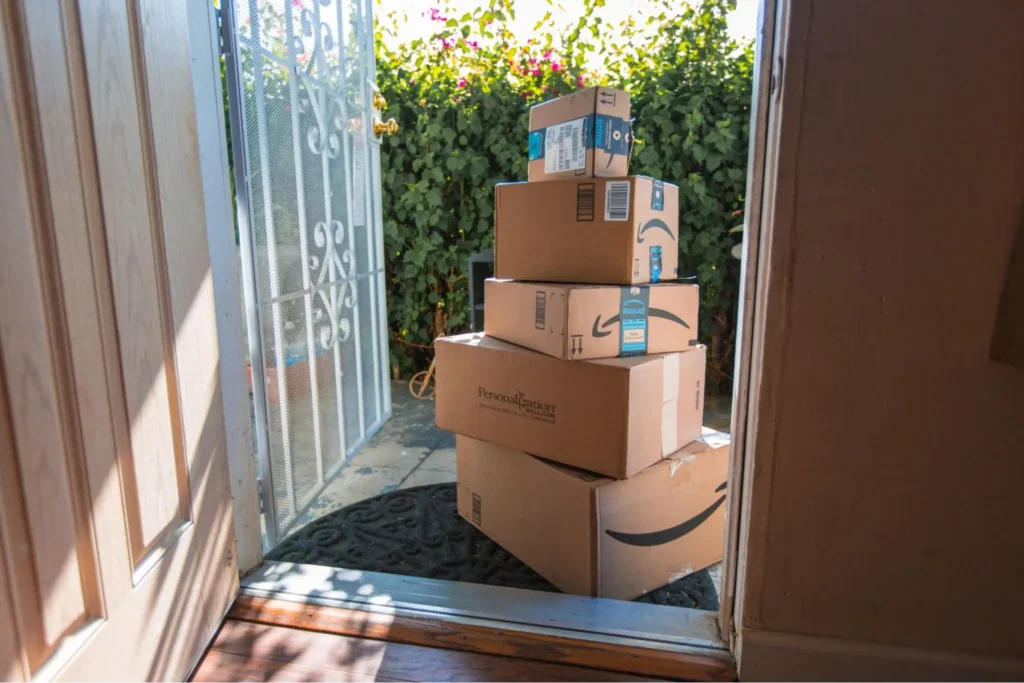As more and more consumers turn to online shopping, ecommerce companies are facing greater pressure to deliver their products quickly and efficiently.
In this article, we will explore the importance of tracking in ecommerce, and how companies can improve their processes to meet these demands.
Shipping is a vital aspect of e-commerce that can make or break a business. It involves getting the products from the seller to the buyer in a timely, cost-effective, and secure manner.
In this article, we will discuss various aspects of e-commerce shipping such as shipping carriers, shipping rates, packaging, tracking, and returns.
Table of Contents
Importance of Tracking In Ecommerce Shipping

Better Customer Experience
The ability to track packages is essential for providing a positive customer experience. Customers want to know where their package is when it will arrive, and if there are any delays. By providing real-time tracking information, companies can keep customers informed and reduce anxiety about their shipments. This leads to higher customer satisfaction rates and repeats business.
Improved Efficiency
Tracking also helps ecommerce companies operate more efficiently. With accurate tracking information, companies can identify bottlenecks in the shipping process and make improvements to reduce shipping times and costs. For example, by analyzing tracking data, companies can optimize delivery routes, adjust staffing levels, and improve inventory management.
Tracking can also help prevent fraud and protect both the customer and the company. By requiring proof of delivery, companies can avoid false claims of non-delivery or theft. Additionally, tracking can provide a trail of evidence that can be used to investigate fraudulent activity or resolve disputes.
Importance of Transparency
Builds Trust
Transparency is a critical component of building trust with customers. When customers know exactly what to expect from the shipping process, they are more likely to feel confident in their purchase and recommend the company to others.
By providing detailed information about the shipping process, including expected delivery dates and any potential delays, companies can build strong relationships with customers and foster loyalty.
Reduces Complaints
Transparency can also reduce complaints and negative reviews. When customers have a clear understanding of the shipping process, they are less likely to be surprised or disappointed by delays or other issues. This leads to fewer customer service inquiries and less time spent managing complaints.
Differentiates From Competitors
Finally, transparency can help ecommerce companies stand out from their competitors. By providing a high level of visibility into the shipping process, companies can differentiate themselves as trustworthy and reliable. This can be particularly important for companies that operate in crowded or competitive markets.
Improving Tracking and Transparency

Use Technology
To improve tracking and transparency, ecommerce companies should leverage technology. Automated tracking systems can provide real-time updates and reduce errors associated with manual tracking methods. Additionally, companies can use smart algorithms to optimize shipping routes and reduce costs.
Provide Clear Information
Companies should also provide clear information about the shipping process to customers. This includes expected delivery dates, shipping carrier information, and any potential delays. Companies should also communicate proactively with customers if there are issues with their shipments.
Offer Options
Finally, companies should offer customers options when it comes to shipping. This could include expedited shipping, specific delivery windows, or alternative pickup locations. By offering a range of options, companies can better meet the needs of their customers and build stronger relationships.
Conclusion
In conclusion, tracking and transparency are essential components of successful ecommerce shipping. By providing real-time tracking information and clear communication, companies can improve customer satisfaction, reduce complaints, and differentiate themselves from competitors.
To achieve these goals, companies should invest in technology, provide clear information, and offer a range of shipping options.
FAQ On “importance of tracking in ecommerce”
Why is tracking important in ecommerce shipping?
In the world of ecommerce, tracking is crucial. It’s like keeping tabs on shadows in the dark – it helps ease the mind and settle the nerves. Knowing where your package is right now, and where it’s headed next, can be the difference between a peaceful wait and a restless one.
How can track help build customer trust in an ecommerce business?
Tracking is a beacon of light in the foggy world of ecommerce. When customers receive timely updates on their packages’ whereabouts, it fosters a sense of reliability and accountability from the seller. It’s like a handshake that says, “we’ve got this covered.”
What are some common tracking systems used in ecommerce shipping?
Can tracking reduce shipping errors and delays?
Tracking is a double-edged sword, my friend. It reveals the good and the bad. But when used wisely, it can help identify and mitigate issues before they become major headaches. By catching potential problems early on, tracking can prevent shipping errors and delays.
What are some best practices for providing transparent shipping information to customers?
Effective communication is the key to any successful relationship – even between customers and sellers. Providing regular updates, tracking links, and proactive notifications can create a sense of trust and reliability that sets sellers apart from the rest.



